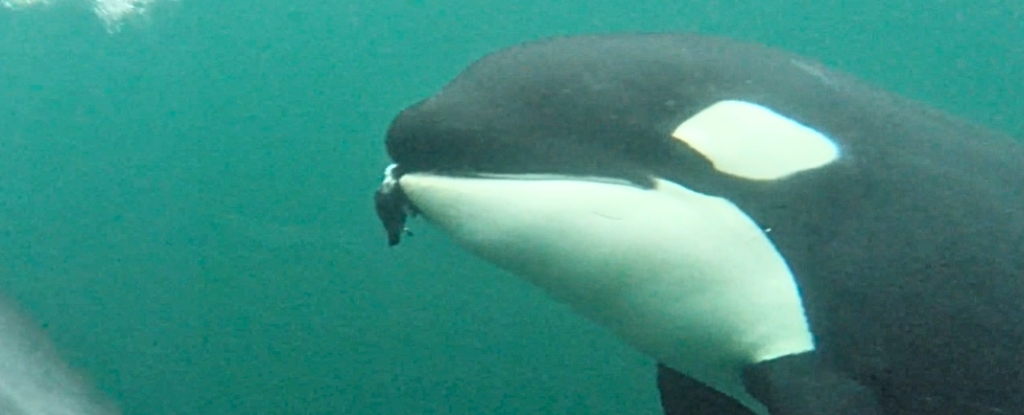
Despite their fearsome reputation as “killer” whales, orcas have been observed engaging in a surprisingly generous behavior: sharing food with humans. A recent study, spanning two decades, meticulously recorded 34 instances of orcas offering prey to humans, shedding new light on the complex social behaviors of these marine mammals.
Orcas, scientifically known as Orcinus orca, are the largest members of the dolphin family and are found in oceans worldwide. Known for their rich cultural behaviors and unique vocalizations, orcas live in matrilineal societies where older females play a crucial role in socializing younger members. These societies are marked by intricate social structures and behaviors, including the sharing of food, which is often seen as a way to strengthen social bonds.
Documenting Orca Generosity
The study, led by ecologist Jared Towers from Bay Cetology in Canada, documented dozens of interactions where wild orcas shared prey with humans. The criteria for these interactions were strict: they had to be initiated by the orcas and not result from human provocation. The interactions were captured through video, photographs, or detailed interviews with witnesses.
“Orcas commonly share food with their cetacean companions and family members as a prosocial activity and a way to build relationships with each other,” said Towers. “The fact that they share with humans may show their interest in relating to us as well.”
Instances of Prey-Sharing
Of the 34 recorded interactions, 21 involved people on boats, 11 involved swimmers, and 2 occurred with individuals on the shore. The orcas involved were of various ages and sexes, and the interactions required the orcas to intentionally release food within one body length of the humans. Often, the orcas would play with the food before offering it.
In half of these cases, the orcas presented entire food items, such as a whole seal. Despite the orcas’ efforts, humans did not accept the offerings in 30 of the 34 interactions, likely due to ethical and safety concerns. Nonetheless, some orcas persisted in their attempts to share.
Exploring the Motivation Behind Orca Generosity
This study suggests that interspecies prey-sharing might be more common than previously thought, as the research only included interactions meeting specific criteria. As human and orca activities increasingly overlap, such behaviors may become more frequent.
While similar sharing behaviors are observed in domesticated animals like cats and dogs, this study is groundbreaking in its focus on non-domesticated animals. The researchers noted that accounts of wild animals attempting to provision humans are exceedingly rare.
“Given the advanced cognitive abilities and social, cooperative nature of this species, maybe orcas are attempting to forge cross-boundary relations,” the researchers noted.
Historical and Evolutionary Context
Orcas’ advanced cognitive abilities and their status as apex predators, albeit in different biomes from humans, make their behavior particularly intriguing. Unlike terrestrial predators, orcas face no competition from humans for resources, which may facilitate such interactions.
Historically, stories of dolphins saving humans date back centuries, suggesting a long-standing curiosity and potential for interspecies relationships. The study’s authors propose that generalized altruism and reciprocity are cultural by-products of prosocial species, which orcas exemplify.
“Orcas are second only to humans in terms of encephalization, or brain size relative to body size,” the study authors pointed out, highlighting an evolutionary convergence between primates and cetaceans.
Implications and Future Research
The findings, published in the Journal of Comparative Psychology, offer a novel perspective on the evolutionary and intellectual parallels between humans and orcas. As researchers continue to explore these interactions, they may uncover further insights into the social dynamics and cognitive capabilities of orcas.
With the increasing overlap of human and orca habitats, understanding these behaviors could foster a greater appreciation and protection of these intelligent marine mammals. The study not only challenges our perceptions of orcas but also invites further exploration into the potential for meaningful interspecies relationships.





